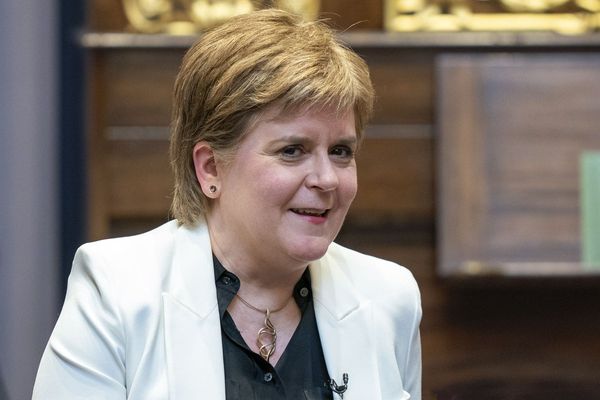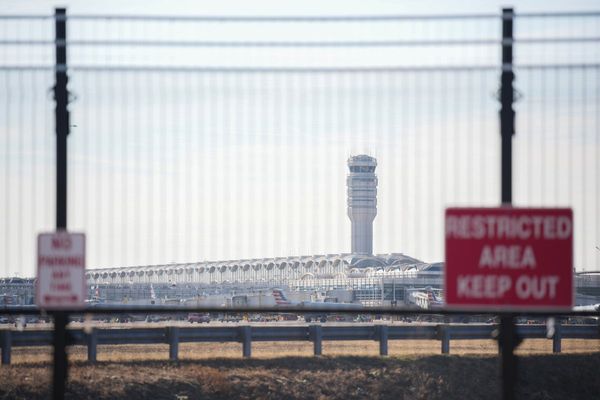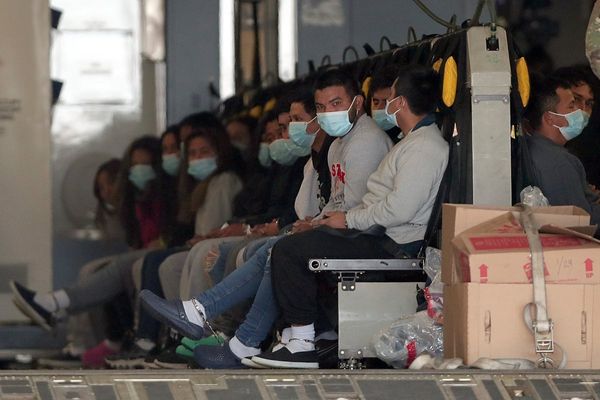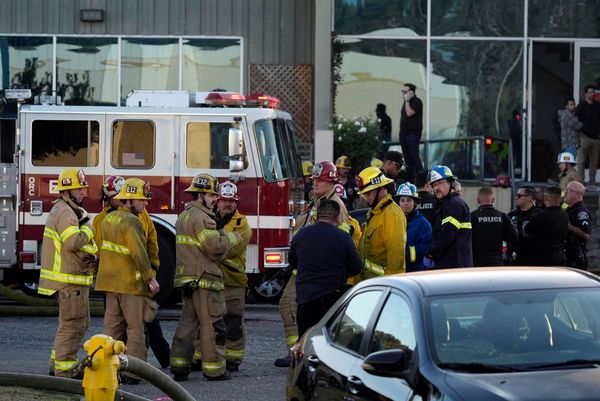
Welllllll, October 14 is not going to be one of the great days in the nation’s history. That’s starting to look very likely now. For a start, it’s just going to be a bit of a dud of an event. The entire country is being asked to troop out, on one day, to the local state school or old Rechabite hall, put one word on a single ballot and then go away again. One’s suspicion is there won’t be a lot of democracy sausage happening. Yes voters are going to be depressed — those that aren’t delusional — and No voters are going to be grumpy at being hauled out for all this palaver. Those still undecided on the day, I can’t even get into the head of. But no-one’s going to be real happy about it.
The Yes camp, one suspects, believed for a while that the fact of a voting day, an exclusive ballot, etc, would help it gain votes. Who would be such a bastard as to come out to a polling place, make a special trip, and then vote No to this very modest request? Came the answer: lotsa, lotsa people. The very fact of the forced vote will bring out a small No vote in its own right, voting thus in pure protest at being dragooned out of their weekend routine.
But a larger cohort of the several No votes will be those who are otherwise indifferent, but now identify with resistance to the proposal because it has become such an authorised, enforced, elite process. That No, which might be the margin that kills the thing, has been entirely produced by the way in which the Australian state, in the form of the Albanese government, identified itself with the Yes vote, constructing the No vote not as an opponent making valid arguments but as a mere symptom of false thinking, a resistant sludge to be cleared away.
The greater part of the No vote remains people who simply reject the Voice on the grounds they do not want the nation-state divided in such a way, and do not feel that Aboriginal and Torres Strait Islander peoples have a special status that warrants such a measure. But the No section that the process has brought into being — and who are using the vote to define themselves against the current order — is not insignificant.
However, the mainstream right is leaving nothing to chance, and has thus started importing the lower-depth tactics of the hard right into the mainstream. The verballing of Marcia Langton by Joe Kelly in The Australian was a clear indication of this. For a time, there were sufficient Yes supporters within News Corpse to suggest that the organisation might play it straight. But they have largely been minimised, as The Australian chases its right-wing audience base.
What role the hard right’s systematic lying is actually playing is hard to say. I remain of the opinion that the Yes/No vote is shadowing the “knowledge class plus a few other small groups/everyone else” divide pretty closely and so, over several rounds of polling, the numbers are gradually approaching around a 40-60 Yes/No split.
The Yes side’s response to the ramping up of the hard right’s campaign may well have given said campaign an added benefit. Rather than simply refuting the claims item by item, the Yes side — campaign and media — has been adopting a mix of shocked revelation and moralising about that campaign, repeated over and over in the news. This too has a sales angle — for Nine and Guardian Australia, and one or two other outlets — but it is a bit blithe about the way in which many people view both campaigns.
Yes campaigners have been all over the shop with regard to the process of the Voice and its implications. From well before the Uluru Statement from the Heart, the Voice was tied to Treaty and to a truth process. Indeed, the Voice was argued to be the necessary precursor to Treaty, so that there would be a body for the Australian state to enter into Treaty with. All that is public record, yet Voice spokespeople have squirmed this way and that and given half a dozen answers.
That, and the last-minute inclusion of some executive consultation provisions, has made some feel that the Yes side has played fast and loose with the presentation of their case. That does not compare with the viciousness and cynicism with which pockets of the No case are putting out lies. But many Yes supporters are unwilling to admit there has been any sharp practice on their side whatsoever.
The melancholy fact may be that the main driver of a decline in the Yes vote as measured by all polls is the Yes case itself. It’s not the lies that are reaching people that’s turning them off; it’s their growing acquaintance with the actual proposition on offer. The Yes vote, in this scenario, was high nine months ago, because people had little clue what they were saying yes to. That explanation would certainly accord with the feeling that this thing is going down, taking us all with it, and nothing can be done to save it.
In response to that, as Kevin Bonham recorded on Wednesday, a degree of magical thinking about numbers and polling has sprung up on the Yes side. Possibly, for many, this is what they need to believe to get through the next four weeks, stuck on a campaign that really has no room to manoeuvre. The vote night watch is going to be pretty crap too, three hours tallying six states and the overall majority, over and over, diverting to pseph-only phun phacts like the vote split among left-handed Presbyterians etc etc.
Your correspondent’s belief that the Yes campaign should stick to a minimal case remains, and emphasise that it’s a small change with no state authority being granted. If asked about a Treaty, then say yes — but a Treaty will be purely symbolic, which is also true.
But perhaps a yet more radical move now needs to take place, and that is to draw volunteers from across the country and pile into South Australia and Tasmania to do face-to-face public campaigning and doorknocking. The Yes campaign should heed the steady erosion of the vote week on week, and perform a triage. Queensland and Western Australia should be regarded as gone beyond gone, and any notion of getting back Queensland as a state where it all blah blah blah, rejected as foolish sentimentalism. Every Yes campaigner from those states willing to travel should be asked to get themselves to Adelaide or Hobart, report to God knows who (there seems to be little on-the-ground central command in the Yes campaign), be given a map and three hours of doorknocking training, and let loose.
That should be everyone from those states, and some from Victoria and New South Wales too — on the grounds that, if a Yes vote in those states is not by now locked in, and merely requiring maintenance, then this thing is all over, red rover. The only chance Yes has, on the numbers, is if Victoria and NSW are still Yes-ish, and SA and Tasmania are capable of being won. By moving a significant number of volunteers to those states, the Yes campaign would use the asymmetry of state equality to its advantage. If Victoria and NSW are still a Yes, and if there’s still an overall majority out there, then this thing will be won or lost by 50,000 voters in SA, and possibly about 20,000 in Tasmania.
There will be some response that this is old politics: that much campaigning is now being done by social media and text and phone. But that has arguably been the missing element in the Yes campaign. They should have trained their volunteers more, earlier, to work the streets. Tough work to do. But if you can find them, and talk to them, and make the human connection, then victory that would not otherwise have been possible could be achieved. Whether the Yes campaign is set up to do something this decisive and audacious remains to be seen. If nothing else, it’s worth doing it just to do something that can be seen to be decisive action, to shake out some of the air of doomed fatalism that is beginning to grip the campaign, as we meander towards a grim evening on October 14…
Are SA and Tassie the last resort for Yes? Let us know your thoughts by writing to letters@crikey.com.au. Please include your full name to be considered for publication. We reserve the right to edit for length and clarity.







